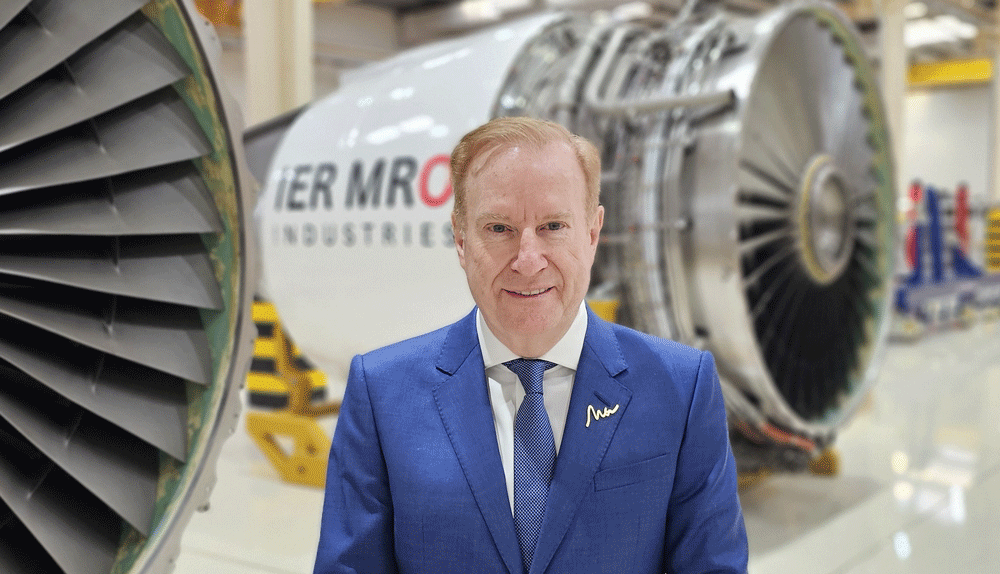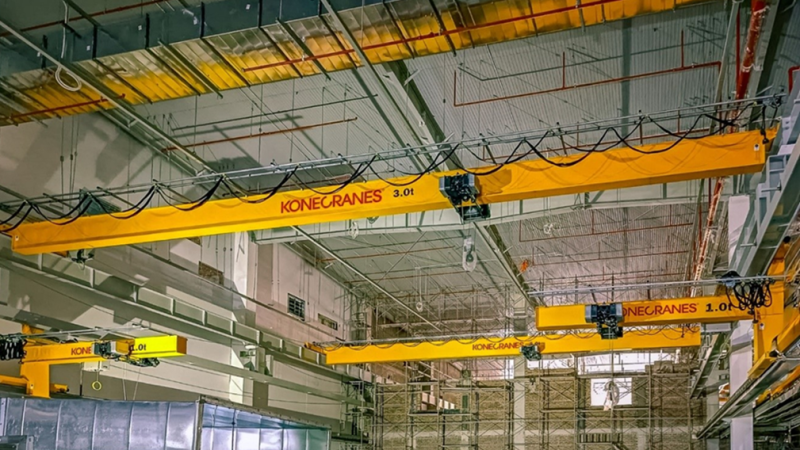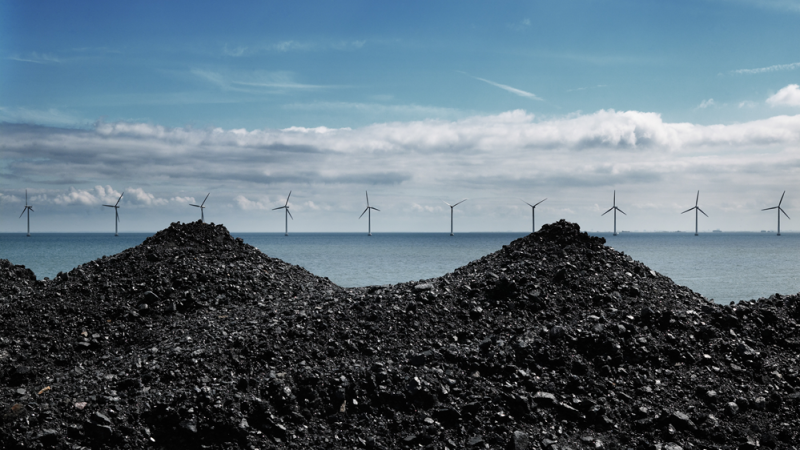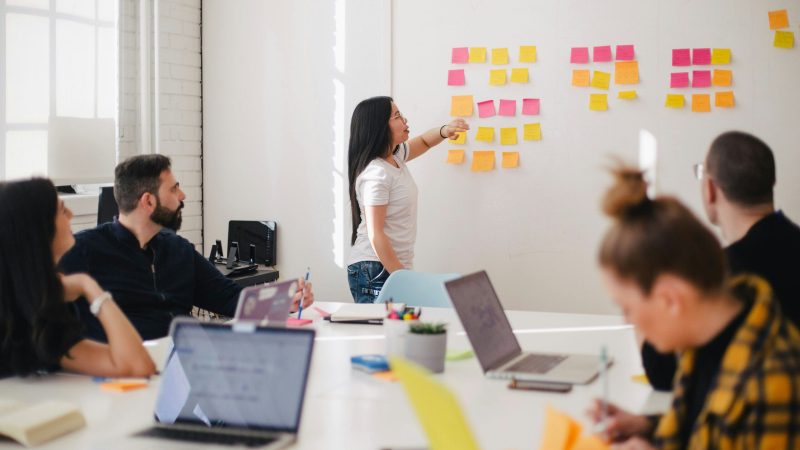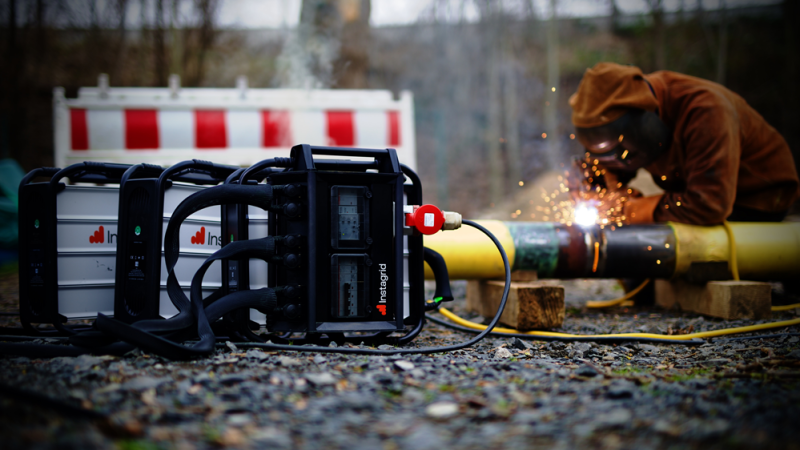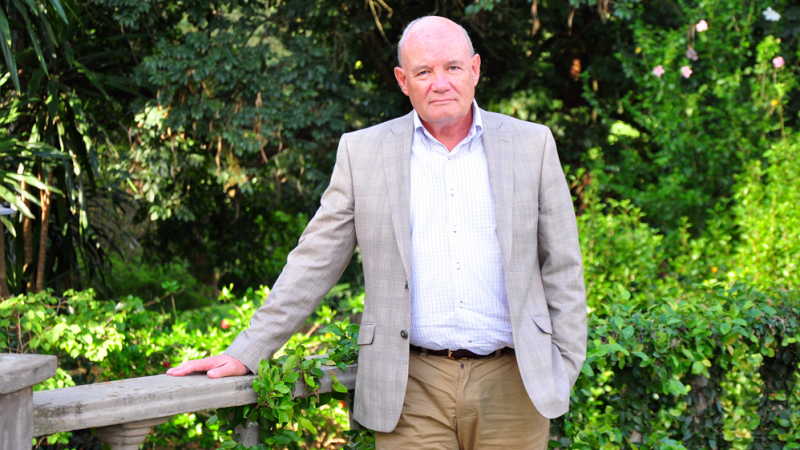International Energy Resources FZCO was established in the year 2000, entering into the Jebel Ali Free Zone in 2002. The company was founded on a simple idea – to take surplus energy equipment and materials from the oil and gas power sector and open up a secondary market for it.
“We were looking to manage assets for various equipment owners, maximising returns on the equipment that was no longer required,” says Larry Howie, Chairman and CEO of International Energy Resources FZCO.
It might not seem like a revolutionary business model, but when International Energy Resources FZCO was established, it was not one commonly seen in the energy sector.
“The end users of those items are not set up to sell and do not have procedures for that in place,” Howie points out. “We offered a unique service because we could look at and understand those assets and find new homes for those materials.”
While the obvious solution might have been to act as a broker or middleman, creating equipment owners and buyers, Howie quickly realised that for the business to be a success, it would have to own its assets.
“We purchased the assets ourselves and became the true title holder of those items. It was more credible for us to approach customers in our network and sell those assets, or refurbish them ourselves and use them elsewhere.”
Howie was developing this model at the same time as the Internet was truly becoming widespread, and so by establishing a website to sell and lease products through, International Energy Resources FZCO quickly established itself as a leader in the field.
Of course, not everyone was a fan of Howie’s strategy of giving equipment a second life. In particular, the OEMs who were seeking to sell brand new products.
“They were always trying to sell new equipment and say the old equipment was no longer useful, leaving surplus lying around with a lot of life still left in it,” Howie says. “We picked up those materials and became a bit of a competitor to the OEMS, but we could also work with them, support them, and supply the materials for them to overhaul so we could sell them refurbished with a warranty.”
The company went on to build up a large business in Dubai, with offices, warehouse storage and workshops. It has three separate operations running in the Free Zone and a turnover of $250 million. But when we speak with Howie, he is keen to tell us about a new business that he is establishing under the International Energy Resources banner.
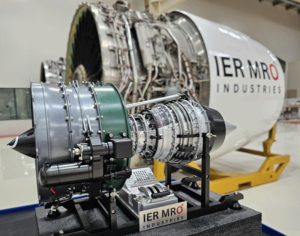 Taking Flight
Taking Flight
The gas turbine engines that Howie and his company have been working with for 20 years have more than a few things in common with aircraft engines, and that is where the company is looking next, with the establishment of IER MRO Industries.
Aircraft engine testing is a big sector – you do not want anything going into the air before you know it works. But the facilities required mean that often engines are repaired and overhauled in one country and then shipped halfway around the world just to test.
“We needed a new location as the Free Zone doesn’t have the regulatory compliances we need for the aerospace industry, so we approached Dubai South where the largest airport in the world is being built,” says Howie. “They were very supportive, accommodating and understanding from the outset. They saw the capabilities we had. We talked about the lack of support in the Middle East for MRO facilities to support local carriers. Large OEMs were always calling for operators to send equipment overseas, and ultimately that means that business leaves this country to go to Europe and the US.”
International Energy Resources made the case that this was not a long term solution, and began investing heavily in new facilities, training and knowledge centres while acquiring 1.3 million square feet of land to build a unique new twin cell test centre and state of the art MRO facility.
“It is a prime location within the airport itself, next to Emirates Flight Training College, with the full support of the Dubai Authorities and government,” Howie tells us.
Already the project has received interest from Lufthansa Technik, GE Aerospace, Safran, CFM International, Air Arabia, Fly Dubai and Emirates Airlines.
“We are funding everything from the bottom line,” says Howie. “We have done no borrowing. Everything we have in our inventory is owned and paid for. It is a unique business.”
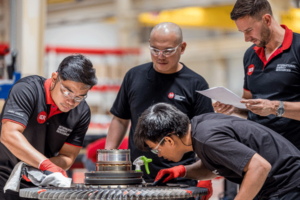 Above and Beyond (IER MRO Industries DWC LLC)
Above and Beyond (IER MRO Industries DWC LLC)
Launching a new business, even when you already have an established business to support it, is always a challenge. First, Howie needed to find a suitable location for the new company, while ensuring it had support from local authorities. The company found its new home at the Dubai South Mohd Bin Rashid Aerospace Hub. From there, International Energy Resources looked to address supply chain issues.
“We thought it would be seamless to establish, but we found challenges in the supply chain. After Covid we have seen shortages of raw materials across the industrial and aviation sectors,” Howie observes. “Our business model is to take used equipment and materials and enter them back into service sustainably.”
Unlike the energy sector when International Energy Resources began, the aircraft industry already has an established tradition of “tear downs” – taking old aircraft, tearing them down and reusing their components. Howie believes that his firm has plenty to bring to the sector, however.
“We have tear down capabilities, we can assess engines, but we also know how to use new technologies such as AI and robotics to maximise to streamline processes, ERP systems and procedures.”
But while the familiarity with tear down facilities might mean more competition for International Energy Resources, it also means a much more collaborative industry.
“Industrial OEMs are very protective, restricting how you operate,” Howie says. “In the aerospace industry, we have had accommodating approaches from GE Aerospace and Safran themselves, and we have even added one of the major engine manufacturers to the airlines to our portfolio.”
International Energy Resources (IER MRO Industries DWC LLC) is also finding ways for the industry to evolve even during periods when resources are at a premium time and delivery times can be unreliable.
“We will not just lease engines but the individual components and parts,” explains Howie. “If an engine comes in that needs a component changed and no new components are available, we can offer a refurbished component until it can be replaced with a new component. Then the old part comes out and we can rent it on to somebody else after further using our uniquely developed repair procedures.”
The business model that International Energy Resources FCZO and MRO are built on comes down to one idea – that there is no point in discarding something that can still do a good job. It is an idea that Howie believes in strongly.
“I started IER when I was 40, so when people ask when I will retire I tell them that I did retire when I was 40, because this business is my passion,” he laughs. “Now I’m 66 and starting a brand new business. I’ve been here for 35 years, we have been very successful and very appreciative of our success. I would like to leave the next generation with new challenges, and new ideas, and change the way the industry has been controlled by large conglomerates. We are bringing something tangible to the work environment, using the old apprenticeship approach to bring local people in and give them proper training. Soon at least 40% of the world’s aircraft are going to be based in this region, it has huge potential.”
